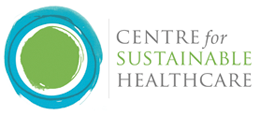- Group home
- You must register/login in order to post into this group.
Teaching and Learning Event on Sustainable Healthcare
By: Keele University School of Medicine
Summary
Following on from a university wide pledge to, “promote environmental sustainability in all that we do”, Keele Medical School has been running teaching sessions as part of the core curriculum for all 3rd year MBChB students to increase awareness on sustainability within the workplace. These teaching sessions consist of a lecture by a doctor working in the NHS followed by small working groups discussing case studies on waste in the NHS.
The lecture focusses on the doctor’s reflections on his/her clinical practice and how it can conflict with his/her personal beliefs and actions on environmental sustainability. Overall, the students have been very positive about both sessions considering them relevant to their future practice and increasing their knowledge. The students especially enjoyed the style of delivery and the enthusiasm of the facilitators. Many also agreed that these sessions were likely to influence of their future practice. These teaching and learning sessions have since become embedded in the MBChB curriculum.
Course Description
Keele introduced a whole-cohort introductory lecture during central teaching, delivered by a consultant anaesthetist. The clinician reflected on how his clinical practice often contradicts his personal beliefs in, and personal practice of, environmental sustainability. This didactic lecture-based teaching was followed by breakaway group discussions in which students were facilitated to think further around sustainability in the workplace using four case studies based around prominent types of waste within the NHS. The groups were facilitated by enthusiastic and knowledgeable staff including the Head of sustainability and energy Officer from the local University Hospitals of North Midlands Trust (UHNM).
Course or session dates: This teaching and learning event runs once a year (usually in March) for all 3rd year medical students.
Number of students taught: 130
Pedagogical format: Lecture & Case-based learning and discussion
Teaching time: Total student teaching time for this course or session: 2 hours
Materials used: Keele educators have developed their own cases based around four prominent types of waste within the NHS: food, pharmaceutical, clinical and fuel. Each case is accompanied by targeted questions to guide students’ discussion and help them brainstorm potential solutions and the barriers and opportunities of their implementation. Students are also provided with supporting information for each case based on the published scientific literature, NHS Sustainable Development Unit (SDU) documents and figures, videos, relevant case studies from the SDU and / or Centre for Sustainable Healthcare (CSH) and local initiatives.
Curriculum area: Public health. Development of leadership skills.
Sustainability learning outcome addressed:
PLO 2 - Demonstrate the knowledge and skills needed to improve the environmental sustainability of health systems
- Existing learning objectives were identified in the Keele curriculum which encompassed the learning objectives for these new sessions on environmental sustainability, hence the listed Keele ILOs were not modified.
Lessons Learned
Since implementing the first year three intervention Keele has recognised that earlier exposure to sustainability topics would be beneficial to enhance engagement and understanding amongst the medical student cohort. Subsequently, they have introduced the topic of environmental sustainability and healthcare earlier on in the medical course, as part of the introduction to public health lecture. They have also generated a variety of literature review topics for first year medical students to choose from for their SSC. Several students in the subsequent cohort have selected sustainable healthcare-related topics for their SSC from the list, or self-generated.
Based on third year medical students’ feedback and the facilitators’ own experience, the following points have been identified as being critical for the success of their teaching and learning interventions about environmental sustainability and healthcare:
- Small yearly cohort size (120-130 students) allows delivery of a whole cohort intervention so that all medical students gain an understanding of environmental sustainability in healthcare
- Involvement of a mixture of enthusiastic clinical “role models”, relevant stakeholders such as local hospital trust sustainable development team and academic staff
- Use of realistic case-based scenarios for interactive sessions
- Small group, facilitated discussion
- The scheduling of the teaching and learning sessions at an appropriate time in the academic year is also important for student engagement.
Keele is now looking to build on this early work by providing a variety of environmental sustainability and healthcare-related topics for first year medical students to research and write about (in a 2,000 word literature review) as part of their SSC.
